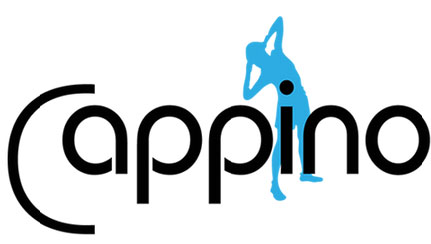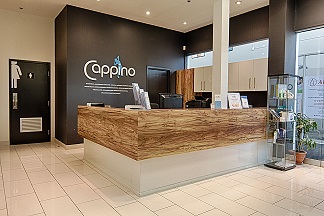It is a common belief that children and babies should have very few structural stresses or strains in their bodies, because they are so young. Unfortunately, the reality can sometimes be very different.
Let me explain! Birth is a stressful event where the baby is subjected to enormous forces turning and twisting in the uterus, while squeezing through the pelvic bones. As a result, many babies are born with odd shaped heads and may have to live with some very uncomfortable stresses.
Cranial osteopathy
Cranial osteopathy encourages the release of these tensions and stresses in the body and head that may have been caused by the birth. By holding and observing the baby, osteopaths gently manipulate the body to encourage it to function as it should. Osteopaths are looking to recognize any effects caused by birth and release that pressure, particularly in the base of the skull where nerves to the tongue and organs may become irritated and effect suckling and cause nausea. Some babies cope extremely well with even quite severe retained moulding and compression, and are content and happy. For others it is a very different story, and they can display a variety of problems:
- Crying, irritable baby: A crying, fractious, irritable baby often needs to be rocked to sleep or prefers being carried all the time.Reason: The baby may be uncomfortable, with a constant feeling of pressure in the head. This is often made worse by the extra pressure on the head when lying down.
- Feeding difficulties: If the baby takes a long time to feed and one feed merges into the next. He or she might be a windy feeder.
Reason: Feeding is difficult and tiring due to mechanical stresses through the head, face and throat. The nerves to the tongue may be irritated as they exit from the skull, which makes suckling difficult. - Sickness, colic and wind: Regurgitation of milk between feeds, bouts of prolonged crying due to colic and wind, which often become worse in the evening. Reason: The nerve from the stomach may be irritated as it exits from the base of the skull, which would impair digestion. The diaphragm may be stretched or distorted, which further compromises both digestion and the ability of the stomach to retain its contents.
- Sleep disturbances: The baby sleeps for only short periods, and may sleep little in the day (or night), waking at the slightest noise. Reason: The tension on the bony and membranous casing of the skull keeps the baby’s nervous system in a persistently alert state.
As the child grows, the effects of retained moulding (head) can lead to other problems, such as:
- Ear infections (otitis): Recurrent ear infections that gradually become more frequent. Retained birth compression within and around the bones of the ear may impede fluid drainage from the ear. These recurrent infections deplete the immune system and can lead to a string of further infections.
- Sinus and dental problems: Persistent mouth breathers, constantly blocked or runny noses, and less oxygen for the tissues, especially for the developing brain. With time, this can increase the chance of dental overcrowding.
- Behavioural problems and learning difficulties: Poor concentration, constant fidgeting, difficulty sitting still and hyperactivity.
- Asthma: Children who get short of breath easily or even asthma attacks.
Osteopathic techniques for children
Osteopathic techniques aim to increase movement in the rib cage and the spine to try to improve the working of the lungs and circulation. Other conditions that osteopathy can help treat: Irritable Bowel Syndrome (IBS)/Constipation: Osteopathic therapy is an alternative therapy for IBS. The digestive tract consists of the oesophagus, stomach, small intestine and large intestine (colon). Other organs like the pancreas and liver also play a role in digestion. If these areas are under duress, problems arise. Osteopathy is unique in its ability to assess and treat the motion of these organs. Restoring mobility to the organs, spine and sacrum, allows for balanced nervous system control, and improved digestion and elimination. This makes for a happier and healthier baby! Osteopathic care is a safe, gentle and effective approach without the use of drugs or surgery. Its primary concern is for a person’s health and wellbeing as a whole. In particular, in babies and children it is important to address any issues that could have a negative effect on the function of all body systems; not only for today, but for their future growth and development. It can help your baby grow into a healthy child and, ultimately, a healthy young adult.
For more information or to book an appointment with an osteopath, call 514-684-9073.
- Continue reading with: Could your child have Osgood-Schlatter disease?

